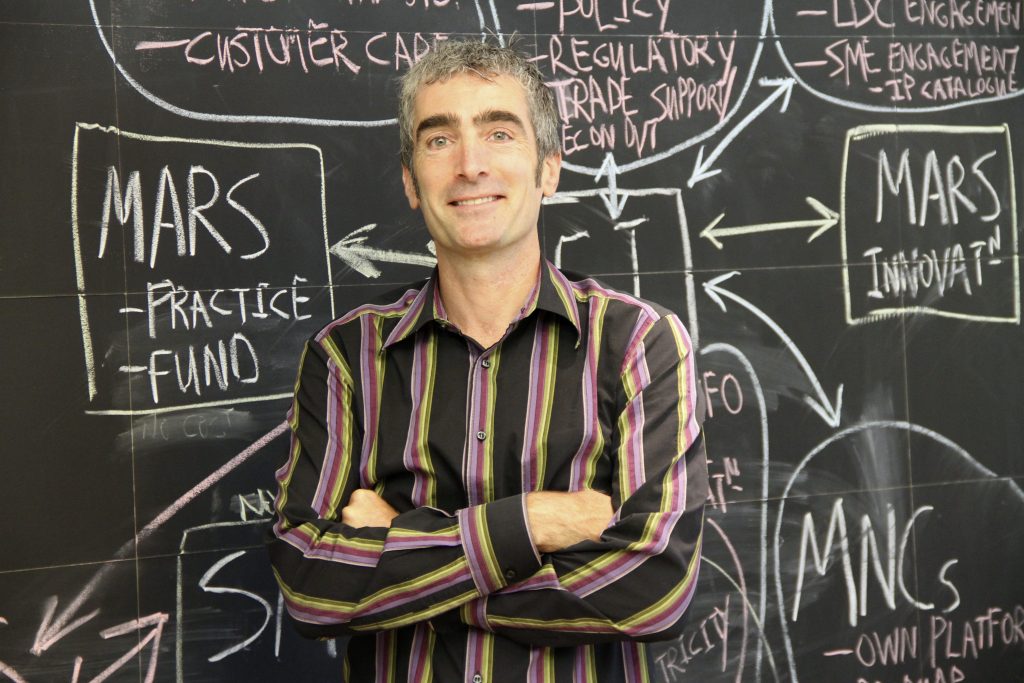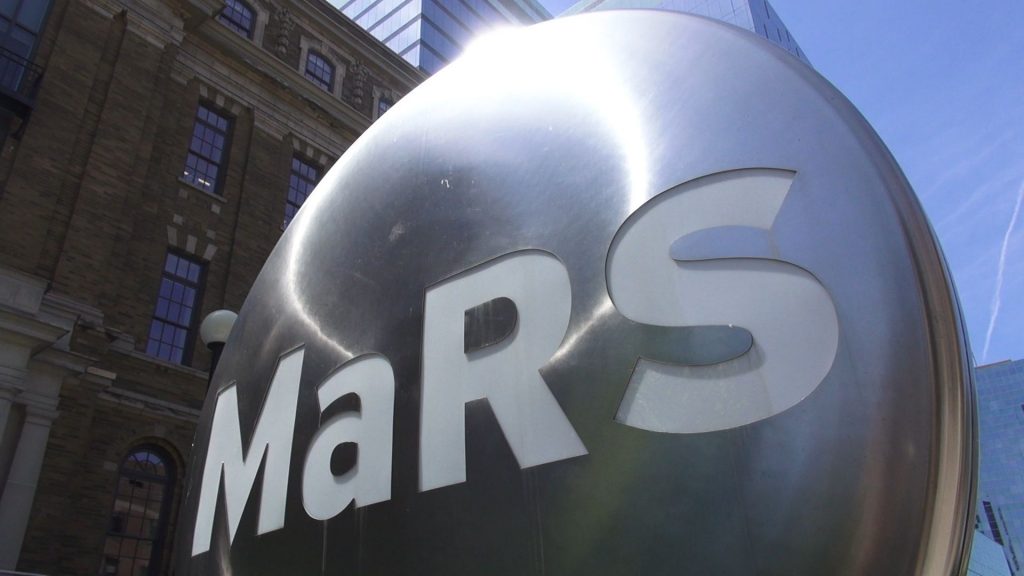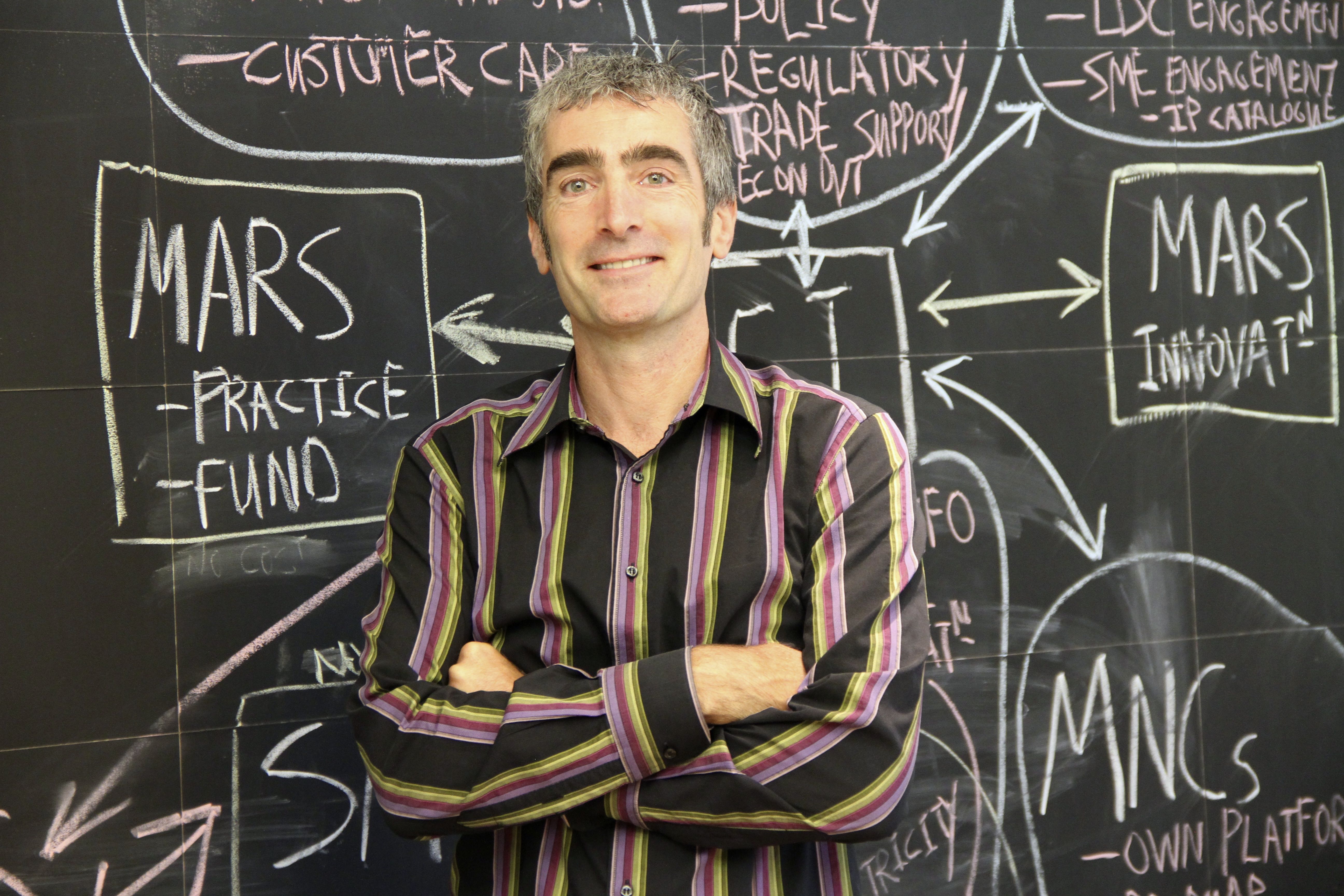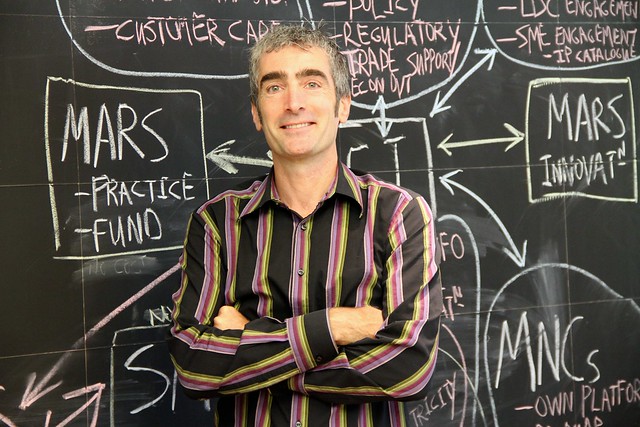By David Dodge and Duncan Kinney
There is a popular, long-running how-to website that predates algorithmically run content farms like eHow, it’s called SoYouWanna.com and it’s super helpful for things like buying a men’s suit or running a marathon.
Think of the MaRS cleantech practice and fund as your SoYouWanna start a cleantech business service. Take MaRS advice and possibly their money and you just might become rich while solving a few of society’s greatest problems – climate change and decarbonizing our energy systems.
Tom Rand is an entrepreneur who made his bones in IT. A company he started called Voice Courier was one of the first in the space when it came to interactive voice response. You’ve no doubt heard, “Press one to listen to the store hours.” That was Tom.
He’s now a senior advisor with MaRS cleantech practice, a business incubator in Toronto. He’s bubbly, charming and enthusiastic and he has a knack for getting right to the point.
“In a market economy if you solve a big problem you get a big reward, that’s how it works, and in my mind in the 21st century the single most significant problem we face is climate change. And so clean tech solutions that reduce carbon emissions and provide alternatives to fossil fuels are facing the single largest global market of the 21st century. It couldn’t be bigger, it’s between 3 and 4 trillion dollars a year by 2020 according to the International Energy Agency.”

Tom Rand is an entrepreneur and cleantech expert. He’s a senior advisor with the MaRS cleantech practice and a managing partner of the MaRS Cleantech Fund. Photo David Dodge, Green Energy Futures
SoYouWanna become a successful cleantech entrepreneur
But it’s not enough to have an amazing idea or technology, you have to be able to develop a business. And that’s a far different skill than creating cool new cleantech solutions in the research lab.
That’s where Rand and MaRS come in. Rand has a checklist for what’s he looking for when cleantech companies come to him, looking for an investment to scale up.
- Unique, patented technology
- Solves a big, global problem in the global market
- The inventor needs to be able to work with a team
- No subsidies or regulatory changes required
That last one is a biggie and it really speaks to the pragmatic, realistic decision making that people like Rand can bring to taking a great idea and turning it into a business.
“We like companies that are in the market today developing value without a price on carbon, without regulatory change. So when those policy pieces come in it only accelerates that company,” says Rand.
The MaRS cleantech practice business incubator is currently assisting about 200 cleantech entrepreneurs with their start-ups. But only a select few of those are “strong investment opportunities” says Rand. This is where MaRS Cleantech Fund comes in. It’s a small, $30 million fund operated by Rand and his co-managing partner Murray McCaig.
Rand’s cleantech start-up stars
Rand is quick to point to several examples of companies that meet the checklist, have gone through the MaRS pipeline and are on the way to commercializing their products.
“Woodland Biofuels, who are operating a pilot plant in Sarnia right now, produce ethanol which is a gasoline replacement, from woodchips. And the will be able to produce ethanol more cheaply than the gasoline it replaces,” says Rand.
Rand is also bullish on Morgan Solar, a company we’ve featured on Green Energy Futures. He sits on the board and is an investor.
“Another example of a game changer would be Morgan Solar. So Morgan Solar has reinvented solar power with an optic that takes all the incident sunlight and drops it onto a very small, very efficient chip. End of the day, they will be in the market in 2014 with the cheapest solar power on the planet. That’s a game changer,” says Rand.
Energy storage could help us see our electricity grid integrate renewables at previously undreamt of levels.
“Energy storage is the holy grail of cleantech to be honest. It hasn’t been solved yet. There are companies trying very hard to do that. Temporal Power in Oakville with a spinning flywheel for short-term storage and Hydrostor, underwater compressed air for long-term large-scale storage,” says Rand.
The prize here could be enormous. “Because with storage you can have clean, abundant, renewable power when the sun isn’t shining and the wind isn’t blowing and if you crack that nut, you have a massive global market,” says Rand.

The MaRS Discovery District in Toronto, Ontario is a non-profit helping support start-ups in the medical, cleantech and other sectors. Photo David Dodge, Green Energy Futures
The MaRS Cleantech pipeline
The MaRS Discovery District started as a way to help capture the commercial potential of a billions of dollars spent on science and technology research in the Toronto area.
It’s a charitable trust with an amazing building in downtown Toronto. It’s 700,000 square feet sandwiched between universities, hospitals, Bay Street, City Hall and Queen’s Park. It’s a beautiful and expanding mix of modern and heritage architecture. I was lucky enough to get a tour of some of the building and to see some of the professionals at work.
MaRS used to be an acronym for “medical and related sciences,” but has since branched out into cleantech, IT, engineering and social entrepreneurship The cleantech practice part of MaRS has three to four full time staff along with a cadre of experienced volunteer advisors and mentors.
Soon after they started the cleantech practice at MaRS Rand says they identified a couple of big gaps. Early stage cleantech funds were having trouble raising their first million dollars.
“Finding that first million or two is very difficult in this country, much more difficult than in a place like Silicon Valley and so the MaRS Cleantech Fund was designed to fill that gap,” says Rand.
So far the MaRS Cleantech Fund has made six investments one of them being Green Mantra. Via a very cool proprietary process they take waste plastic and use off-the-shelf processing equipment to turn it industrial waxes and lubricants.
The MaRS Cleantech practice also engages with utilities, regulators and original equipment manufacturers to help break down some of the institutional barriers to cleantech innovation.
They might not be interested in investing in companies that need subsidies or regulatory changes right now, but they can see the possibilities for entrepreneurs now and even more so when we finally do enact smarter policy.
“These are very entrenched and powerful industries. We are ignoring climate change. Again, you know, we can be passionate and motivated because we’re solving one of the biggest problems that humanity faces. But we operate in the real world. We have to bring value to the market today,” says Rand.


